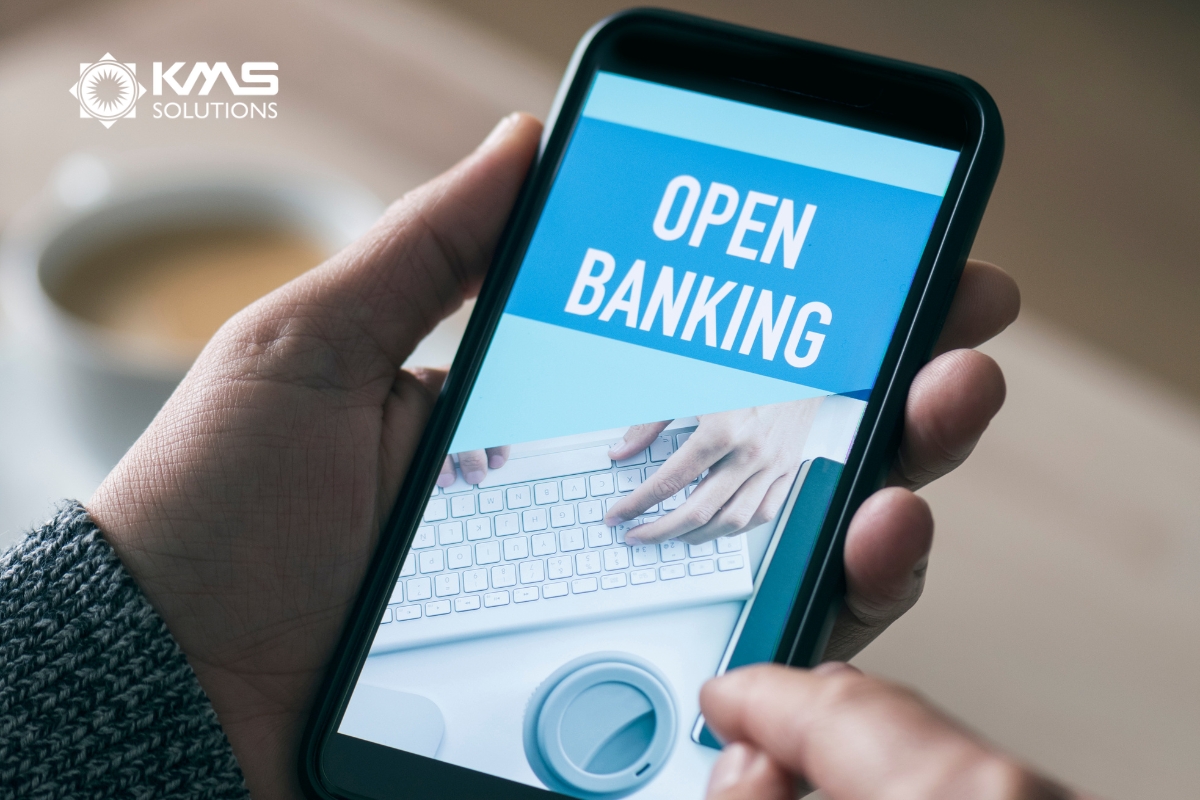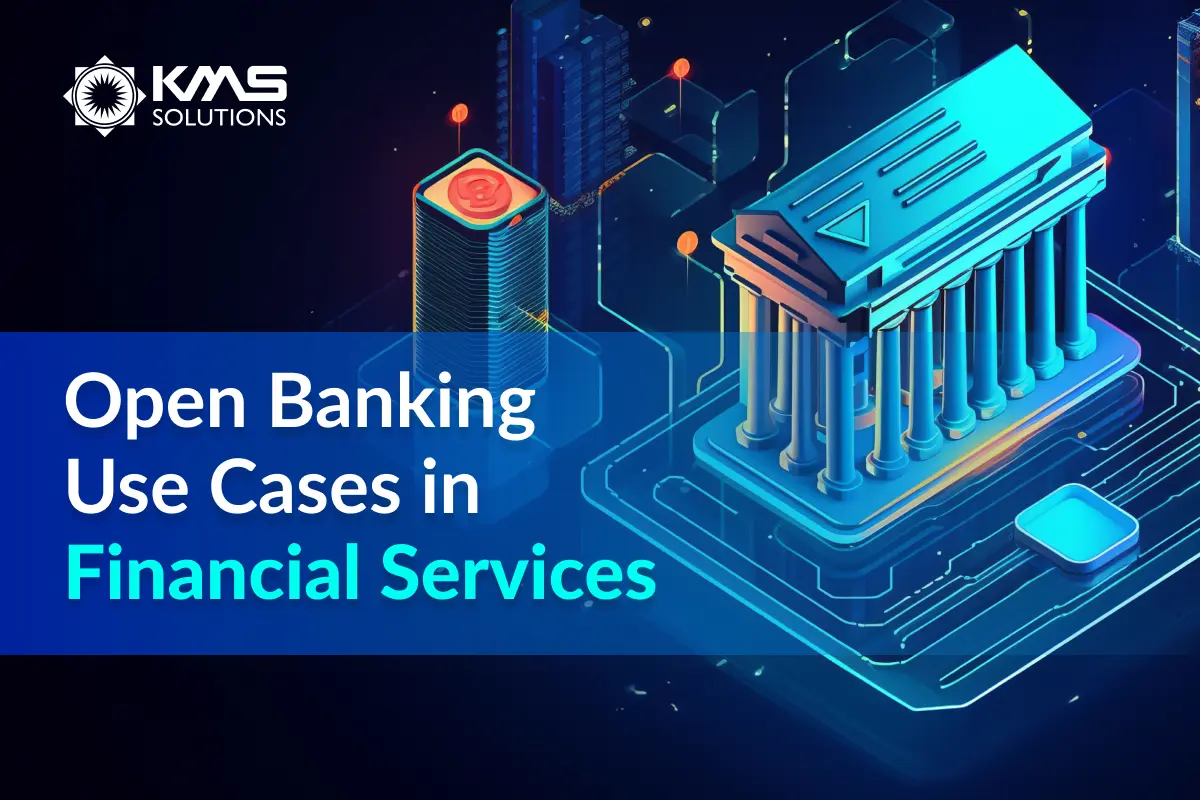Open banking enables consumers to share their financial data with third-party providers via the open banking API model, enhancing their ability to manage, transfer, and optimise finances. Operating within this system allows authorised providers to tailor financial products more effectively and make credit decisions more efficient.
Despite its broad applications, however, many providers are still discovering how open banking apps can benefit them in not only improving their operating procedures, but also unlocking new revenue streams. In this article, our specialists at KMS Solutions outline some practical use cases that demonstrate how open banking is revolutionising banking innovation and advancing financial services across industries.
The Need for Banking Innovation in Financial Services
Traditional finance has long been dictated by the outdated routines of established institutions setting rigid market standards. In recent years, FinTech companies have been successfully challenging these norms with new points in banking innovation, propelled by the disruption of technology across financial industries.
The limitations due to reliance on traditional data sources that they are trying to overcome include:
- Limited Data Scope: Often confined to structured data from banking systems and credit bureaus, these sources lack the comprehensive details FinTechs need to innovate and meet evolving consumer demands.
- Delayed Insights: Without real-time data, FinTech companies struggle to respond swiftly in dynamic markets, impacting their competitiveness.
- Exclusion of Non-Financial Data: Traditional sources typically omit non-financial factors like social media activities and lifestyle preferences, which are crucial for FinTech organisations aiming to provide personalised support and innovation in financial services.

What is Open Banking?
Open banking allows third-party developers to tap into financial data housed within traditional banking infrastructures using application programming interfaces (APIs). It revolutionises financial interactions by enabling secure customer data exchanges between banks, non-bank financial entities, and third-party providers.
An open banking platform is built on:
- Real-time Data Sharing: With explicit user permission, authorised third parties gain access to financial data such as transaction histories and account balances, updated frequently to reflect real-time financial states.
- API-driven Openness: APIs act as the essential linkage between traditional banks and third-party providers, facilitating a secure and standardised pathway for data access, enhancing system compatibility and integration ease.
- Empowered Consumer Control: Consumers have the authority to determine which third-party providers can access their data and can withdraw this permission at any time through tools like the Australian Consumer Data Right (CDR). This control mechanism ensures that consumers can utilise personalised financial services without compromising privacy.
The open banking sector is experiencing rapid growth, with predictions indicating a substantial increase in the value of open banking transactions globally by over 500% from 2023 to 2027. The driving force behind this expansion is the escalating consumer demand for banking innovation in financial services and tailored management of their accounts.

Use Cases of Open Banking in the BFSI Sector
Tailored Financial Offerings
Leveraging open banking APIs, FinTech companies gain access to real-time financial data, enabling them to thoroughly analyse user behaviour and preferences. This insight allows them to craft personalised financial products and services that meet individual needs.
From customised budgeting tools to tailored investment advice and advanced insurance app, open banking equip FinTech firms with the capability to provide hyper-targeted solutions. These offerings not only cater to the unique financial circumstances of each user but also enhance the user experience by addressing specific personal preferences and requirements.

Revolutionising Identity Verification
The financial industry loses billions every year during customer onboarding processes, primarily due to the outdated reliance on physical documents for identity verification. These traditional methods not only heighten the risk of identity fraud but are also less secure than digital alternatives.
Open banking provides a solution by enabling immediate access to critical data, allowing firms to:
- Quickly Access Identity Details: Accelerate verification by retrieving essential identity information in seconds.
- Verify Sources of Wealth: Confirm the legitimacy of a customer’s financial resources, enhancing compliance and security.
- Enhance Fraud Prevention: Utilise extensive data to improve fraud detection mechanisms and protect against fraudulent activities.
Banks and lending institutions can also then revolutionise their operations away from (solely) manual verification processes.
Optimising Wealth Management Process
Open banking platform tools utilise real-time financial data to enhance portfolio performance and reduce risks effectively, empowering FinTech firms to create automated investment and wealth management solutions.
By tapping into the potential of open banking, FinTech companies can make sophisticated wealth management tools accessible to a broader audience. This democratisation of financial tools enables users to confidently pursue and achieve their financial objectives, empowered by advanced, data-driven insights.

Streamlining Payment Reconciliation
For businesses struggling to hold extensive financial data over long periods, open banking solutions offer a more effective practice by enabling smart reconciliation, which allows businesses to view all their transactions in a single, integrated platform.
With an open banking platform, businesses also gain the ability to consolidate their transaction data. Transforming this process that was once done over multiple platforms makes it much easier to identify and resolve discrepancies without the cumbersome need to manually compile transaction details, improving both the speed and accuracy of financial management.
Improving the Customer Onboarding & e-KYC Process
Gone are the days of time-consuming paperwork and complicated verification processes. With the emergence of electronic Know Your Customer, open banking allows BFSI organisations to access user data with consent, streamlining the verification and onboarding procedures.
By providing eKYC solutions integrate seamlessly with open banking APIs, KMS Solutions helps banks and financial institutions verify user identities and extract relevant information automatically. This translates to a quicker and more convenient bank account setup experience for customers

Revamping Creditworthiness Assessment
Open banking API also plays an essential role in digital lending since it provides lenders a comprehensive, up-to-date view of an applicant’s financial stability. Assessing creditworthiness goes beyond simply determining if an applicant can afford a loan; it evaluates their likelihood of repayment and their long-standing ability to do so.
While still relevant, traditional credit scores often overlook individuals who are actively improving their financial health. Open banking addresses this gap by providing lenders with real-time insights, enabling them to make more nuanced lending decisions. Moreover, accessing to timely data allows lenders to evaluate creditworthiness more accurately, ensuring they can lend with greater confidence.
Learn More on Open Banking API Solutions with KMS Solutions
Open banking marks a new era of financial empowerment, revolutionizing the management of personal finances. Through enabling secure data sharing and fostering collaboration, it has opened avenues for a diverse array of cutting-edge FinTech solutions.
If you would like to learn more about how you can integrate an open banking platform into your operations and deliverables, speak with our specialists at KMS Solutions today.











